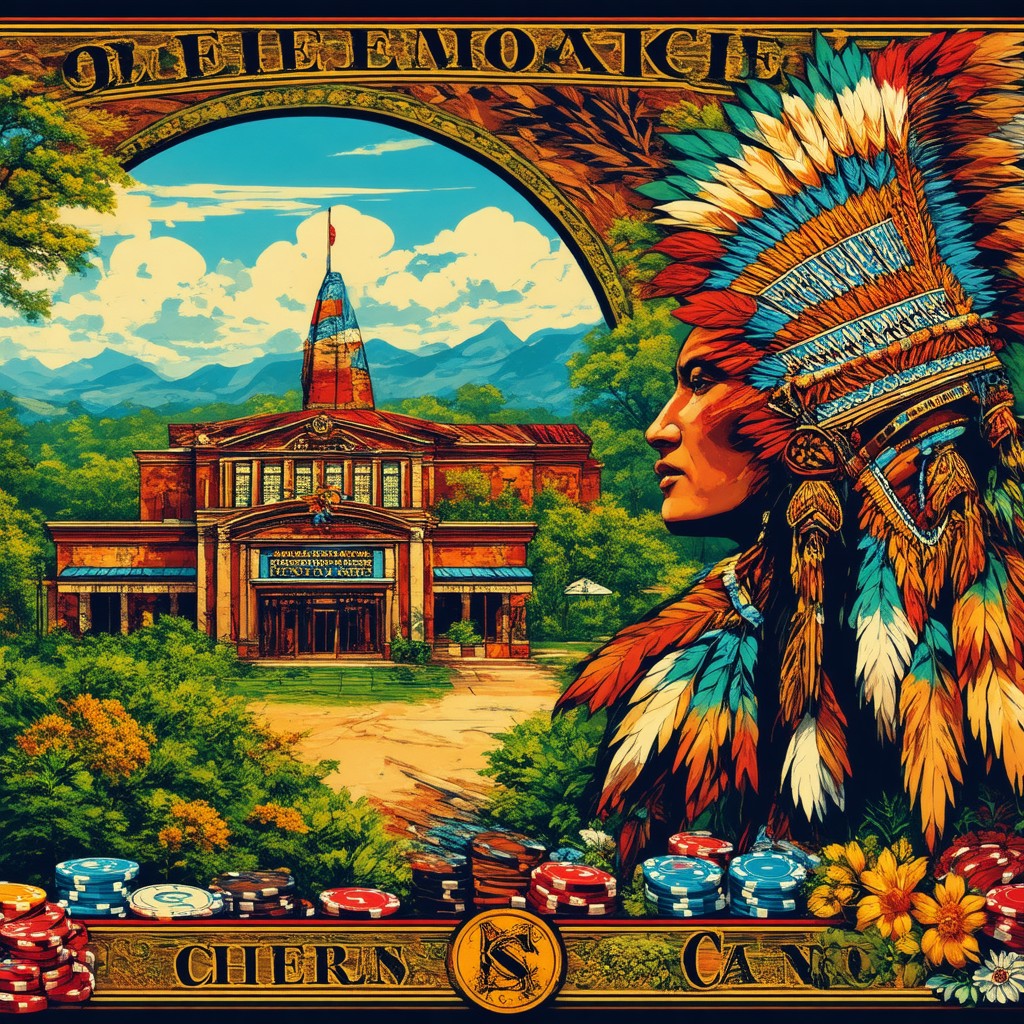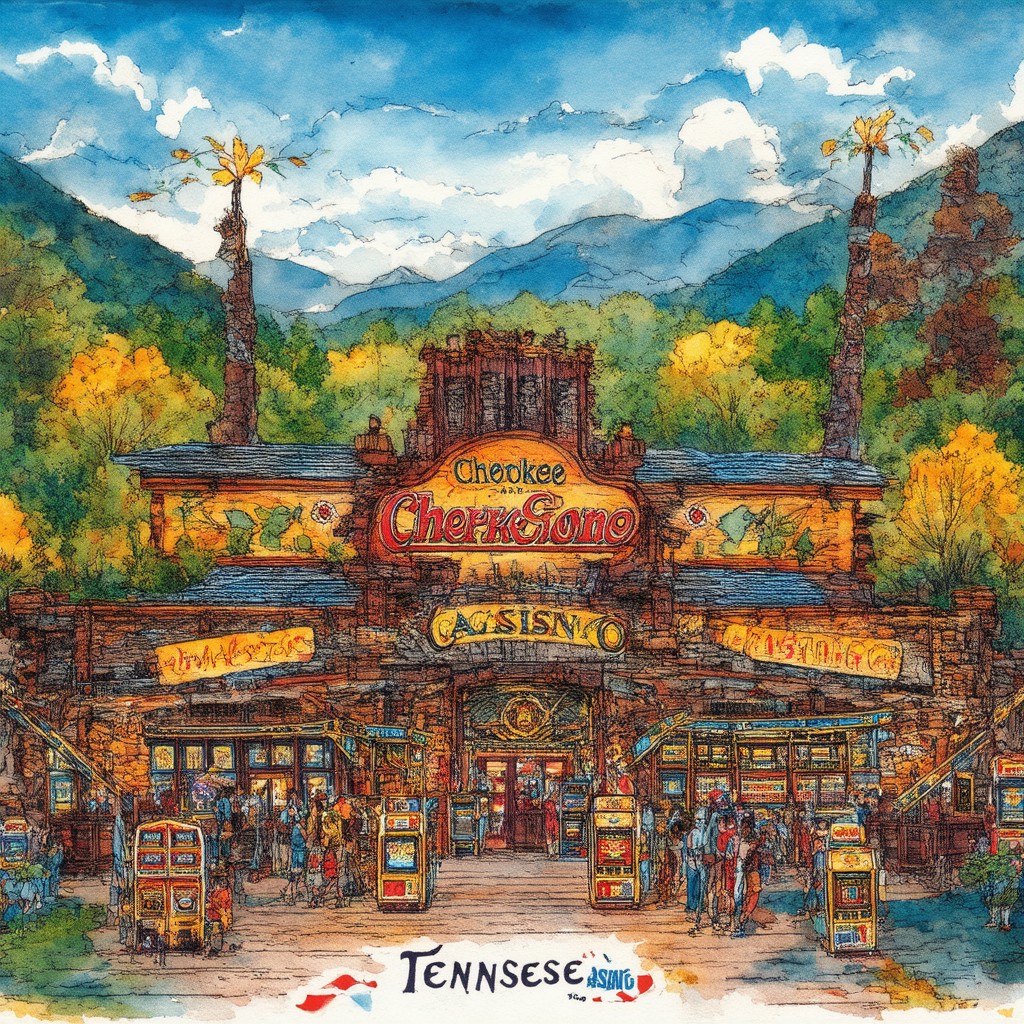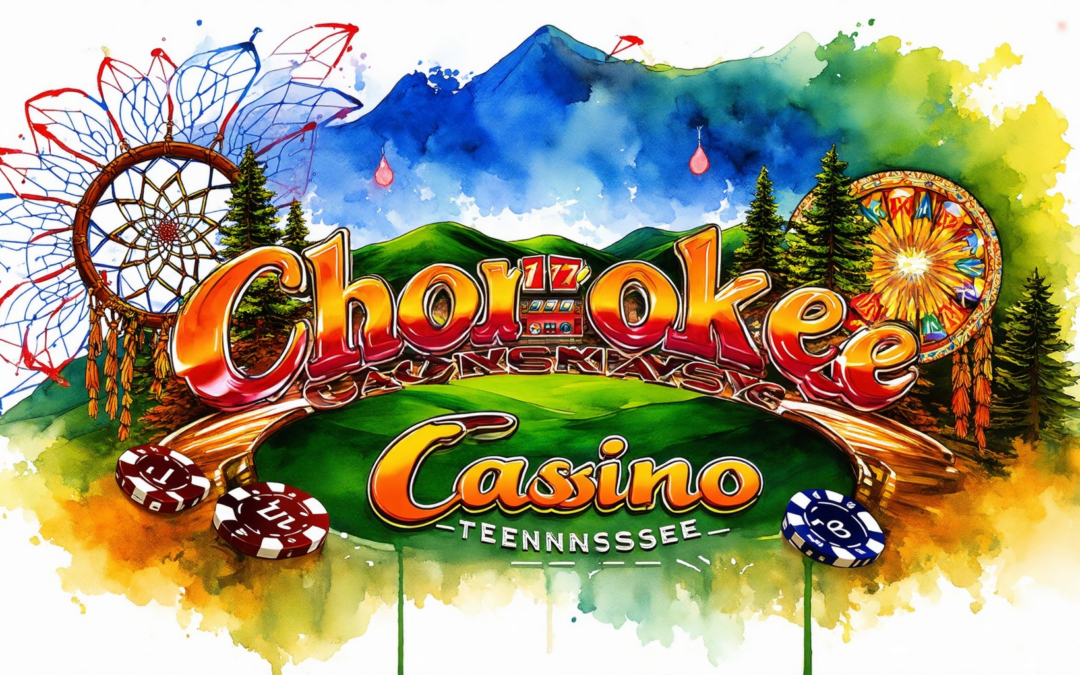Key Takeaways
- Discover the vibrant world of Indian casinos in Tennessee, with a focus on the Cherokee Indian Casino Tennessee.
- Tennessee currently lacks traditional casinos, requiring residents to travel to neighboring states for gaming options.
- Stay informed about the restrictive gambling regulations in Tennessee and potential future changes.
- Explore diverse dining options at Cherokee Casino, including exciting Indian casino Tennessee promotions.
- Understand the economic impact of the Cherokee Indian Casino on local communities and its role in regional development.
Exploring Indian Casinos in Tennessee: What You Need to Know About Cherokee Casino, State Regulations, and Promotions
Are you curious about the Indian casino in Tennessee? If so, you’re not alone. With the growing interest in gaming options across the United States, many are asking, does Tennessee have any casinos? In this article, we will delve into the vibrant world of Indian casinos in Tennessee, focusing on the renowned Cherokee Indian Casino Tennessee and the regulations that shape the gaming landscape in the state. We’ll explore key topics, including the current status of gambling laws, the unique offerings at Cherokee Casino, and the exciting promotions available to players. Additionally, we’ll compare Tennessee’s gaming regulations with those of neighboring states, providing insights into the broader context of Indian casinos in the Southeastern United States. Whether you’re a local resident or a visitor planning a trip, this guide will equip you with essential knowledge about Indian casinos Tennessee and what to expect when you visit. So, let’s get started on this journey through Tennessee’s gaming scene!
Does Tennessee have any casinos?
Overview of Casinos in Tennessee
Tennessee does not have any casinos within its state borders. However, residents have several nearby options for gaming in surrounding states where gambling is legal. Here are the closest casino destinations for Tennessee residents:
- Mississippi: The state is home to numerous casinos, particularly in cities like Tunica and Biloxi. Tunica, located just a short drive from Memphis, offers a variety of gaming options, including slot machines, table games, and poker rooms.
- Arkansas: The state has recently expanded its gambling laws, allowing for casinos in several locations. The Southland Casino Racing in West Memphis is a popular choice for Tennessee residents, offering both gaming and live greyhound racing.
- Kentucky: While Kentucky does not have traditional casinos, it does offer racetracks with gaming machines. The Red Mile in Lexington and Churchill Downs in Louisville provide options for those looking to engage in gaming activities.
- Virginia: The state has begun to open casinos, with the Hard Rock Hotel & Casino in Bristol being a notable example. This venue offers a full range of gaming options and is easily accessible for Tennessee residents.
For those interested in the gaming industry, it’s worth noting that Tennessee has been exploring the possibility of legalizing sports betting and online gaming, which could change the landscape of gambling in the state. As of now, residents must travel to neighboring states to enjoy casino gaming.
Current Status of Gambling Regulations in Tennessee
The gambling regulations in Tennessee are quite restrictive compared to many other states. Currently, the only form of legal gambling is limited to the state lottery and sports betting, which was legalized in 2019. The lack of traditional casinos means that residents seeking an indian casino in tn must look to nearby states. For more detailed information on gaming laws and regulations, you can refer to the State of Tennessee website and the American Gaming Association‘s resources.

What States Have Indian Casinos?
Indian casinos are located in various states across the United States, primarily due to the Indian Gaming Regulatory Act of 1988, which allows federally recognized tribes to operate gaming facilities. Here is a comprehensive list of states with Indian casinos:
- California: Home to the largest number of Indian casinos, notable establishments include the Morongo Casino, Resort & Spa (Morongo Band of Mission Indians) and Pechanga Resort Casino (Pechanga Band of Luiseño Indians).
- Connecticut: The Mohegan Sun (Mohegan Tribe) and Foxwoods Resort Casino (Mashantucket Pequot Tribe) are two of the largest casinos in the state.
- Florida: The Seminole Tribe operates several casinos, including the Seminole Hard Rock Hotel & Casino in Hollywood and Tampa.
- Idaho: Indian casinos such as the Coeur d’Alene Casino Resort Hotel (Coeur d’Alene Tribe) offer gaming and entertainment options.
- Indiana: The state has several Indian casinos, including the Four Winds Casino (Pokagon Band of Potawatomi Indians).
- Minnesota: The Mystic Lake Casino Hotel (Shakopee Mdewakanton Sioux Community) is one of the largest in the state.
- New York: Notable casinos include the Turning Stone Resort Casino (Oneida Indian Nation) and the Seneca Niagara Resort & Casino (Seneca Nation of Indians).
- Oklahoma: This state has a significant number of Indian casinos, with the Chickasaw Nation and the Cherokee Nation operating many facilities, including the WinStar World Casino and Resort.
- Washington: The state features numerous Indian casinos, such as the Tulalip Resort Casino (Tulalip Tribes) and the Muckleshoot Casino (Muckleshoot Indian Tribe).
- Arizona: The state is home to several Indian casinos, including the Talking Stick Resort (Salt River Pima-Maricopa Indian Community).
These casinos contribute significantly to the local economies and provide various entertainment options. For more detailed information on Indian gaming and its regulations, refer to the National Indian Gaming Commission and the American Gaming Association.
Indian Casinos in the Southeastern United States
In the Southeastern United States, Indian casinos play a crucial role in the gaming landscape. States like Florida and North Carolina are notable for their Indian gaming facilities. The Seminole Tribe in Florida operates several successful casinos, including the renowned Seminole Hard Rock Hotel & Casino. Meanwhile, the Cherokee Indian Casino in Tennessee is a key player in the region, attracting visitors from nearby areas.
These establishments not only provide entertainment but also contribute to the economic development of their respective tribes and surrounding communities. The growth of Indian casinos in the Southeast reflects the increasing acceptance and popularity of gaming in these states.
Comparison of Indian Casino Regulations Across States
Regulations governing Indian casinos vary significantly from state to state, influenced by local laws and tribal agreements. For instance, states like California have a more extensive network of Indian casinos, with regulations that allow for a wide range of gaming options. In contrast, states like Tennessee, where there are currently no casinos, have stricter regulations that limit gaming opportunities.
Understanding these differences is essential for players looking to explore Indian casinos. For example, while some states offer extensive promotions and gaming options, others may have limited facilities. This variance can impact the overall gaming experience, making it crucial for players to research the specific regulations in each state before visiting an Indian casino in TN or elsewhere.
Is there a dress code for Harrah’s Cherokee Casino?
Harrah’s Cherokee Casino has a dress code that guests are expected to follow to ensure a pleasant and respectful environment. Here are the key points regarding the dress code:
- General Attire: Guests are encouraged to wear casual yet neat clothing. This includes items such as collared shirts, blouses, and dress pants. Athletic wear, swimwear, and excessively torn clothing are generally not permitted.
- Footwear: Closed-toe shoes are recommended. Flip-flops and beach sandals may not be suitable for the casino floor.
- Special Events: For special events or dining at upscale restaurants within the casino, a more formal dress code may be enforced. It is advisable to check specific venue requirements ahead of time.
- Age Restrictions: Guests must be 21 years or older to enter the casino, and identification may be required.
- Enforcement: Casino staff reserve the right to deny entry to guests who do not adhere to the dress code.
For the most accurate and updated information, it is recommended to visit Harrah’s Cherokee Casino’s official website or contact their customer service directly. This ensures compliance with any changes or specific requirements that may be in place.
Dining Options: Indian Casino Tennessee Buffet
When visiting an Indian casino in Tennessee, such as the Cherokee Indian Casino Tennessee, guests can enjoy a variety of dining options, including buffets that showcase a range of cuisines. Here’s what you can typically expect:
- Diverse Cuisine: Buffets often feature a mix of traditional American dishes, regional specialties, and international flavors, catering to a wide range of tastes.
- Promotions: Many Indian casinos Tennessee offer special promotions for dining, such as discounts for members or themed buffet nights. Keep an eye out for these Indian casino Tennessee promotions to enhance your dining experience.
- Quality and Freshness: The focus is on providing high-quality, fresh ingredients, ensuring that each meal is both delicious and satisfying.
- Family-Friendly Options: Buffets are designed to accommodate families, offering kid-friendly meals alongside adult choices.
Dining at an Indian casino in TN can be a delightful experience, combining great food with the excitement of gaming. Be sure to check the specific offerings at the casino you plan to visit for the latest updates on their buffet selections.
What happened at Cherokee Casino?
Recent events at the Cherokee Indian Casino Tennessee have drawn significant attention, particularly due to a tragic incident that occurred on July 31, 2025. A guest fell from the hotel, resulting in their death. According to Cherokee Police Chief, the first emergency call was received around 9:30 AM, reporting that a person had fallen from the hotel’s upper floors. Initial reports suggested that the fall may have been a suicide, although investigations are ongoing to determine the exact circumstances surrounding the incident. Authorities are urging anyone struggling with mental health issues to seek help and support. Resources such as the National Suicide Prevention Lifeline (1-800-273-TALK) are available for those in need. This incident highlights the importance of mental health awareness and the need for accessible support systems within communities.
Recent Events and Developments at Cherokee Indian Casino Tennessee
The Cherokee Indian Casino in Tennessee has been a focal point for both entertainment and community engagement. In addition to the unfortunate incident, the casino has recently introduced various Indian casino Tennessee promotions aimed at enhancing guest experiences. These promotions include special events, gaming tournaments, and exclusive offers for loyal patrons. The casino continues to adapt its offerings to attract visitors, ensuring that it remains a vibrant part of the local entertainment landscape.
Impact of Cherokee Casino on Local Economy
The presence of the Cherokee Indian Casino in Tennessee has had a profound impact on the local economy. As one of the few Indian casinos in Tennessee, it generates significant revenue through gaming and hospitality services. This influx of revenue not only supports the casino’s operations but also contributes to local businesses, creating jobs and stimulating economic growth. The casino’s role in the community extends beyond gaming, as it often participates in local events and charitable initiatives, further solidifying its position as a key player in the region’s economic development.

What Two States Have No Casinos?
When exploring the landscape of gambling in the United States, it’s important to note that not all states embrace the casino culture. In fact, two states stand out for their complete absence of casinos: Hawaii and Utah.
States Without Casinos: A Closer Look
Hawaii: Gambling was outlawed in Hawaii prior to its statehood in 1959. The state’s constitution prohibits all forms of gambling, including casinos, due to cultural values and the influence of the local population, which largely adheres to traditional beliefs.
Utah: Similar to Hawaii, Utah has a strong cultural and religious influence, particularly from the Latter-day Saint community, which opposes gambling. The state constitution explicitly bans all forms of gambling, including casinos, making it one of the strictest states regarding gambling laws.
According to the National Council on Problem Gambling, these restrictions reflect the states’ commitment to maintaining their cultural integrity and social values.
Reasons Behind the Absence of Casinos in Certain States
The absence of casinos in Hawaii and Utah can be attributed to a combination of historical, cultural, and legal factors. In both states, the strong influence of local traditions and religious beliefs plays a significant role in shaping public policy regarding gambling. This cultural resistance to gambling has resulted in stringent laws that prohibit any form of casino operations.
Moreover, the political landscape in these states has consistently favored maintaining these restrictions, reflecting the values of their residents. For those interested in understanding gambling regulations across the United States, resources from the American Gaming Association provide comprehensive insights.
Why Does Tennessee Not Have Any Casinos?
Tennessee’s lack of casinos is primarily due to its stringent gambling laws, which have historically prohibited the establishment of commercial casinos within the state. Here are key points explaining this situation:
- Legal Framework: The Tennessee Constitution, along with state laws, restricts most forms of gambling. While the state allows for limited gambling activities, such as betting on horse racing and charitable gaming, it does not permit casinos. This legal framework reflects a conservative approach to gambling, influenced by cultural and political factors.
- Political Climate: The political landscape in Tennessee has traditionally been resistant to expanding gambling. Many lawmakers and constituents view casinos as potentially harmful to communities, leading to a cautious stance on gambling legislation. This resistance has been reinforced by advocacy groups that argue against the social impacts of gambling.
- Recent Developments: In recent years, there have been discussions about the potential for legalizing casinos, particularly as neighboring states have expanded their gambling options. However, these proposals have faced significant opposition and have not yet resulted in any legislative changes.
- Alternative Gambling Options: Tennessee has embraced other forms of gambling, such as the Tennessee Lottery, which was established in 2002. The lottery provides funding for education and has become a popular alternative, reflecting a compromise between gambling interests and public concerns.
- Future Prospects: While there is ongoing debate about the future of gambling in Tennessee, any movement towards legalizing casinos would require substantial political support and public approval. The evolving landscape of gambling laws in the U.S. may influence future discussions in Tennessee.
For more detailed information on Tennessee’s gambling laws and their implications, you can refer to resources such as the State of Tennessee.
Historical Context of Gambling Laws in Tennessee
The historical context of gambling laws in Tennessee reveals a long-standing resistance to commercial casinos. The state’s conservative values have shaped its legal framework, which has consistently prioritized limited gambling options over broader casino establishments. This historical backdrop has created a unique landscape where Indian casinos in Tennessee remain absent, despite the popularity of gambling in neighboring states.
Future Prospects for Casinos in Tennessee
Looking ahead, the future prospects for casinos in Tennessee remain uncertain. While discussions about legalizing casinos continue, significant hurdles must be overcome, including political opposition and public sentiment. As neighboring states like North Carolina expand their gambling offerings, Tennessee may face increasing pressure to reconsider its stance. However, any potential changes will likely require a shift in both legislative support and public opinion.
New Casino in Tennessee
Upcoming Developments in Tennessee’s Casino Landscape
Tennessee is on the brink of significant changes in its casino landscape, with plans for new developments that could reshape the gaming experience in the state. Currently, the only major gaming venue is the Cherokee Indian Casino Tennessee, located in the eastern part of the state. However, recent legislative discussions have opened the door for more casinos, particularly in urban areas like Nashville and Memphis. This shift is largely driven by the growing demand for entertainment options and the potential economic benefits that casinos can bring.
As of now, there are no finalized projects, but several proposals are under consideration. These developments aim to not only enhance the gaming experience but also to create jobs and stimulate local economies. The introduction of new casinos could also lead to exciting Indian casino Tennessee promotions that attract visitors from neighboring states.
Closest Casino to Nashville, Tennessee: What to Expect
If you’re in Nashville and looking for a casino experience, the closest option is the Cherokee Indian Casino Tennessee, located approximately 200 miles away in Cherokee, North Carolina. This casino offers a wide range of gaming options, including slots, table games, and poker rooms. Visitors can also enjoy various dining options and entertainment events, making it a popular destination for both locals and tourists.
While Nashville currently lacks its own casinos, the proximity to Cherokee provides an excellent opportunity for those interested in gaming. As Tennessee continues to explore the possibility of expanding its casino offerings, residents can look forward to more accessible gaming options in the future. For now, the Cherokee Indian Casino remains the go-to destination for anyone seeking an Indian casino in TN experience.

